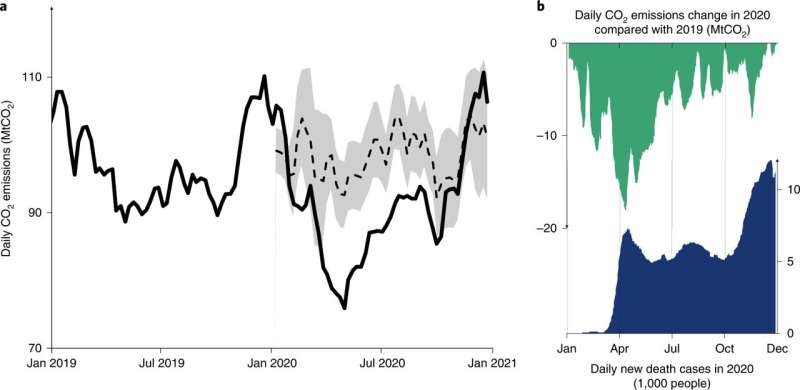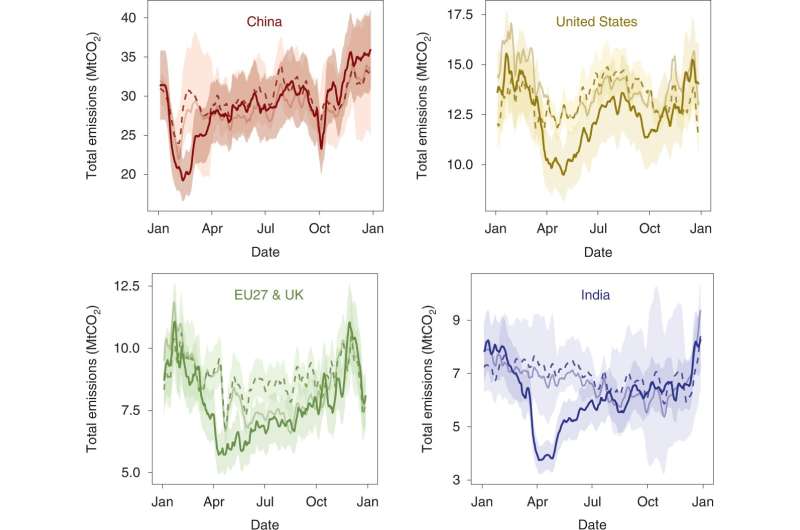July 1, 2022 report
Decrease in CO2 emissions during pandemic shutdown shows it is possible to reach Paris Agreement goals

An international team of researchers has found that the sudden drop in CO2 emissions during the early days of the COVID-19 pandemic demonstrates that it is possible to reduce emissions enough to meet the 1.5 degrees Celsius global temperature increase goal. In their paper published in the journal Nature Geoscience, the researchers describe studying aspects of the sudden drop of CO2 emissions in early 2020 and why the believe their data shows that such reductions are possible in today's economy. The editors at Nature Geoscience have also published a short summary of the findings of the group on this new effort in the same journal edition.
During the early days of the pandemic, nobody knew how deadly the coronavirus was, or how fast it might spread. So governments around the world ordered an immediate lockdown—people stayed home instead of going to work. As result, the word's economy came to a near standstill. At the time, due to massive reductions in truck and automobile traffic and factory shutdowns, air pollution was greatly reduced. In this new effort, the researchers have taken a closer look at the reductions in CO2 that occurred during the first year of the pandemic.
In 2015, countries around the world met in Paris and signed pledges promising to try to reduce greenhouse gas emission to the extent that average global temperature would not rise above 2 degrees Celsius—they also agreed in less concrete terms to try to keep temperatures from rising more the 1.5 degrees Celsius. Since that time, multiple research efforts have shown that based on current efforts, the goal of 1.5 degrees Celsius will not be met.

The researchers found a drop of 6.3% in 2020, which came to 2,200 metric tons less than the year before. The researchers describe the drop as the largest of modern times, and big enough to meet the 1.5 degrees Celsius goal if it were to be sustained. But it was not sustained, of course. As soon as restrictions were lifted, people began going back to work and levels of CO2 emissions rose to the levels measured before the pandemic began.
The researchers suggest that the 2020 reductions show that the Paris Agreement goals are possible, and note that it might be possible to make similar reductions without a massive disruption to the global economy. Most of the reduction in 2020, a third of it, they note, was due to a significant reduction in car and truck traffic. If countries around the world applied more pressure on automakers and consumers, electric vehicles powered by renewably resourced electricity could become the norm, putting goals such as 1.5 degrees Celsius back in reach.
More information: Zhu Liu et al, Global patterns of daily CO2 emissions reductions in the first year of COVID-19, Nature Geoscience (2022). DOI: 10.1038/s41561-022-00965-8
Daily monitoring reveals global CO2 emission patterns, Nature Geoscience (2022). DOI: 10.1038/s41561-022-00987-2
Journal information: Nature Geoscience
© 2022 Science X Network




















